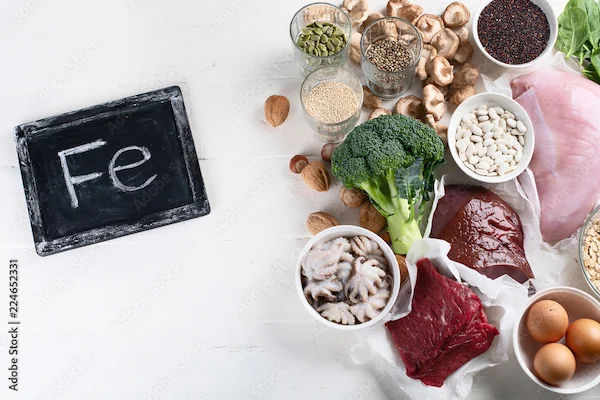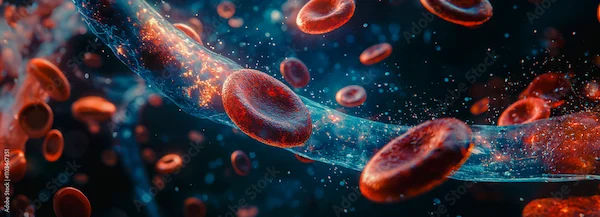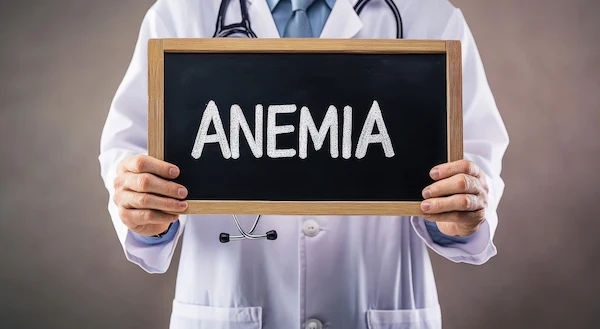Normal Ferritin Levels by Age Group
Know what normal ferritin levels are, why ferritin levels are important and how to maintain normal ferritin levels.

Written by Dr. J T Hema Pratima
Reviewed by Dr. Rohinipriyanka Pondugula MBBS
Last updated on 4th Aug, 2025

Introduction
Ferritin is a protein in your body that stores iron, which is essential for producing healthy red blood cells and maintaining energy levels. Measuring ferritin levels through a blood test helps doctors determine whether you have enough iron stored in your body.
Since ferritin levels can vary by age and gender, it’s important to understand what’s considered normal for you. In this article, we’ll break down normal ferritin levels by age group, explain why they matter, and provide tips for maintaining healthy iron levels.
Consult a Top haematologist for the best advice
What Are Normal Ferritin Levels?
Ferritin levels are measured in nanograms per millilitre (ng/mL). The normal range can differ based on age, gender, and overall health. Here’s a general guideline:
Ferritin Levels by Age and Gender
| Age Group | Normal Ferritin Range (ng/mL) |
| Newborns (0-1 month) | 25-200 ng/mL |
| Infants (1-12 months) | 50-200 ng/mL |
| Children (1-5 years) | 7-140 ng/mL | |
| Children (6-12 years) | 10-150 ng/mL |
| Teenagers (13-18 years) | 12-150 ng/mL (Males), 10-120 ng/mL (Females) |
| Adults (19+ years) | 20-300 ng/mL (Males), 15-150 ng/mL (Females) |
Key Notes:
Women tend to have lower ferritin levels due to menstruation, pregnancy, and breastfeeding.
Men usually have higher ferritin levels because they don’t lose iron as frequently.
Older adults may have slightly elevated ferritin levels due to slower metabolism or underlying health conditions.
Why Are Ferritin Levels Important?
Your ferritin levels indicate how much iron your body has stored. If levels are too low or too high, it can lead to health problems:
Low Ferritin (Iron Deficiency)
Causes:
Poor diet, blood loss (heavy periods, ulcers), pregnancy, or digestive disorders like celiac disease.
Symptoms:
Fatigue and weakness
Pale skin
Shortness of breath
Dizziness
Brittle nails and hair loss
Risks: Can lead to iron-deficiency anaemia, affecting energy and immunity.
High Ferritin (Excess Iron Storage)
Causes:
Hereditary conditions (hemochromatosis), chronic inflammation, liver disease, or excessive iron supplements.
Symptoms:
Joint pain
Stomach pain
Fatigue
Heart problems (in severe cases)
Risks: Can damage the liver, heart, and pancreas over time.
Get Your Health Assessed
How to Maintain Healthy Ferritin Levels?
Healthy ferritin levels can be maintained by:
1. For Low Ferritin (Iron Deficiency)
Iron-rich foods:
Heme iron (better absorbed): Red meat, poultry, fish.
Non-heme iron: Spinach, lentils, beans, fortified cereals.
Vitamin C helps absorption: Pair iron-rich foods with oranges, tomatoes, or bell peppers.
Avoid iron blockers: Tea, coffee, and calcium-rich foods can reduce iron absorption.
Supplements (if needed): Consult a doctor before taking iron pills to avoid overdose.
2. For High Ferritin (Excess Iron)
Follow the steps below:
Limit iron-rich foods: Reduce red meat and iron-fortified products.
Donate blood (if approved by a doctor): Helps lower iron levels.
Avoid vitamin C with meals: It increases iron absorption.
Treat underlying conditions: If high ferritin is due to inflammation or liver disease, proper treatment is needed.
When to See a Doctor
If you experience symptoms of low or high ferritin, consult a doctor. A simple ferritin blood test can check your levels. You may also need additional tests like:
Complete Blood Count (CBC)
Iron studies (serum iron, TIBC)
Liver function tests (if high ferritin is suspected)
Final Thoughts
Ferritin levels play a crucial role in your overall health. Whether you’re dealing with fatigue, weakness, or unexplained symptoms, checking your ferritin can provide valuable insights. Eating a balanced diet, monitoring iron intake, and consulting a doctor when needed can help maintain optimal levels.
Consult a Top haematologist for the best advice

Dr Abilash Jain
General Physician/ Internal Medicine Specialist
12 Years • MBBS,DNB(FM),MNAMS,FIAMS,CCGMG(GERIATRICS),DGM (GERIATRICS),PGCD(DIABETES,BOSTON UNIVERSITY),FID(DIABETICS UK)CCEPC(PALLIATIVE CARE),CCCC(CRITICAL CARE)
Visakhapatnam
Apollo Clinic Vizag, Visakhapatnam

Dr.sanchayan Mandal
Oncologist
17 Years • MBBS, DrNB( MEDICAL ONCOLOGY), DNB (RADIOTHERAPY),ECMO. PDCR. ASCO
Kolkata
Dr. Sanchayan Mandal Oncology Clinic, Kolkata

Dr. E Prabhakar Sastry
General Physician/ Internal Medicine Specialist
40 Years • MD(Internal Medicine)
Manikonda Jagir
Apollo Clinic, Manikonda, Manikonda Jagir
(125+ Patients)

Dr. Ramalinga Reddy
General Physician
5 Years • MBBS MD General medicine
Bengaluru
PRESTIGE SHANTHINIKETAN - SOCIETY CLINIC, Bengaluru

Dr. Thorana Prakash M
General Physician
2 Years • MBBS
Bengaluru
PRESTIGE SHANTHINIKETAN - SOCIETY CLINIC, Bengaluru



.webp)


